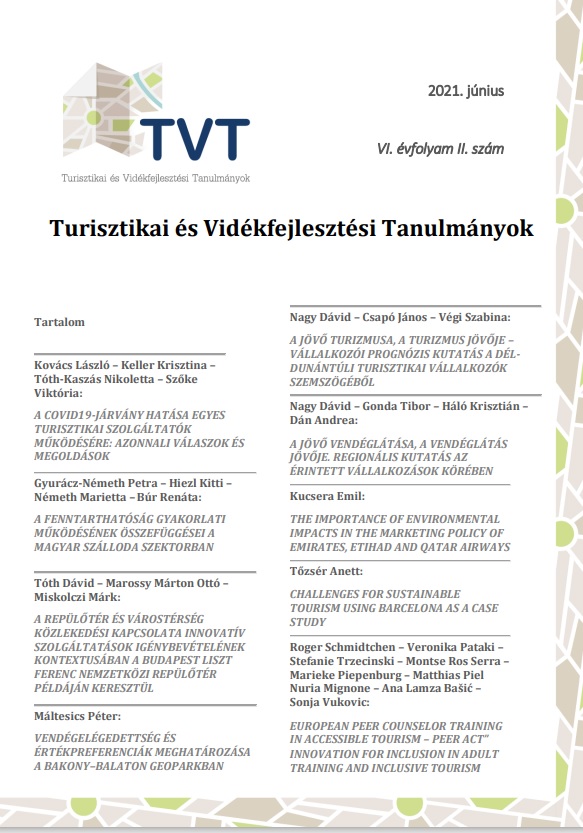THE IMPORTANCE OF ENVIRONMENTAL IMPACTS IN THE MARKETING POLICY OF EMIRATES, ETIHAD AND QATAR AIRWAYS
Keywords:
Emirates, Etihad, Qatar Airways, 'Gulf-specific' characteristics, brand-buildingAbstract
The world’s airlines are fulfilling their missions in the context of significantly differing
geographical, economic, social and political relationships. There are huge differences between
abilities; harmonisation, which would create fair and equal operational conditions and competition,
has faced many obstacles from the beginning.
There has been a harsh rivalry across the eras of air transport, so it is understandable that airlines
are searching for well-defined and distinctive features. Presenting a strong and well-established
‘brand’ surrounded by a marketing strategy has become unavoidable for the acquisition of
passengers and to maintain customer loyalty. This only can be achieved with the help of accurate
knowledge of complex environmental conditions and the intelligent use of this.
Emirates, Etihad and Qatar Airways have become world leaders in the last fifteen years. At the
heart of their operations is a deliberate brand-building and marketing philosophy, the elements of
which have become models for civil aviation practices.
This study reviews the range of environmental conditions; the focus of the analysis is the southern
part of the Persian Gulf.
The study seeks to present the geographic and demographic capacities and ‘Gulf-specific’
characteristics which have created a situational advantage for these airlines and have significantly
influenced the economic operation of air transport.


